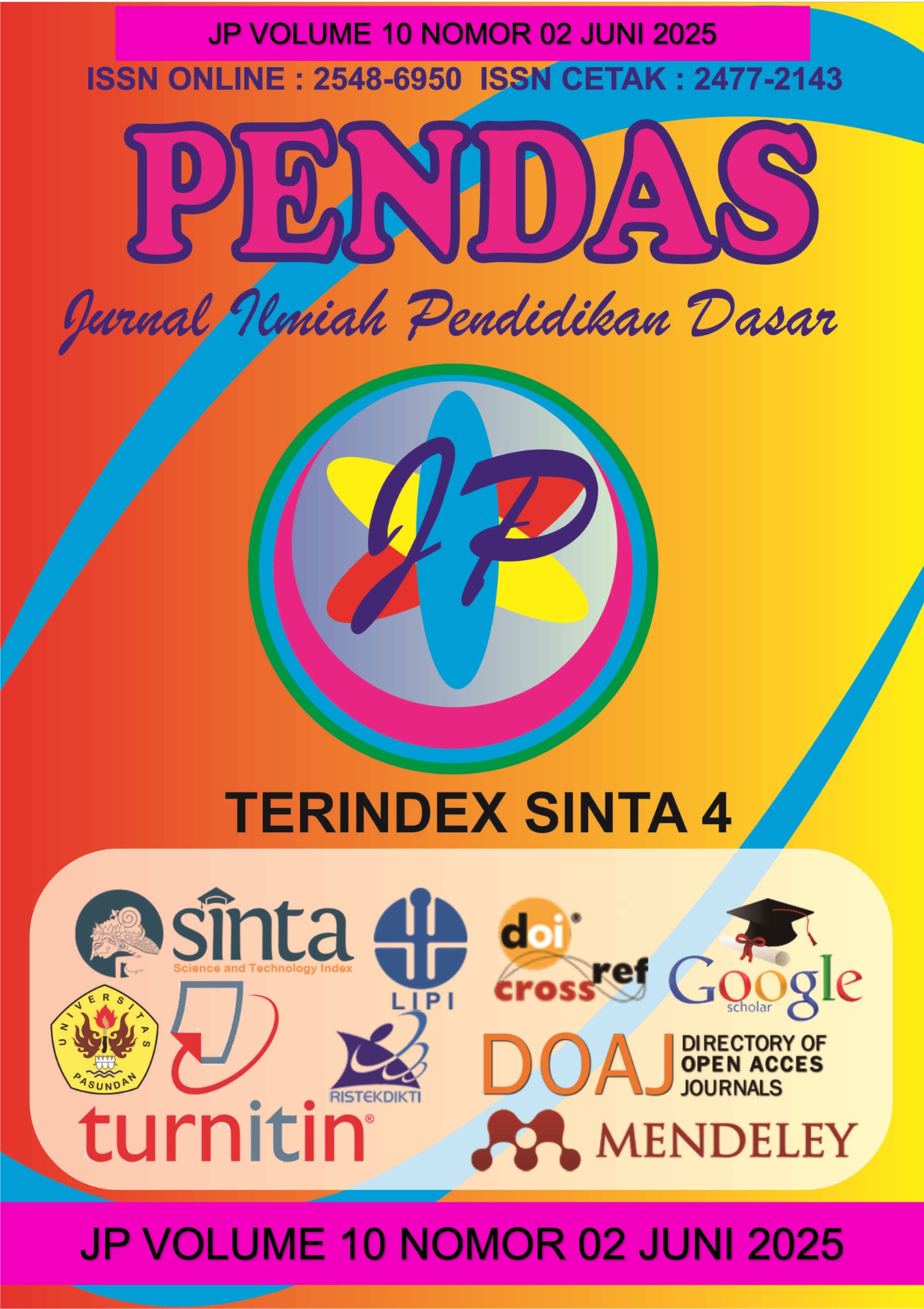ANALISIS MISKONSEPSI KETERAMPILAN MEMBACA PADA PESERTA DIDIK KELAS IV SEKOLAH DASAR
DOI:
https://doi.org/10.23969/jp.v10i02.24516Keywords:
reading skills, misconceptions, elementary school studentsAbstract
Reading ability is a basic skill that must be mastered by elementary school students to support learning success. However, in practice, misconceptions are still found in students related to reading comprehension, which is often misinterpreted as just pronouncing texts. This study aims to identify forms of misconceptions in reading skills of grade IV elementary school students, analyze the causes, and formulate improvement strategies. This study uses a descriptive qualitative approach with subjects of grade IV students and class teachers at SDN 2 Pagutan. Data collection techniques were carried out through observation, interviews, and documentation. The results of the study showed that students experienced misconceptions in understanding the nature of reading, such as difficulty in determining the main idea, answering questions only literally, and being unable to distinguish between facts and opinions in the text. Factors causing misconceptions include the teacher's learning approach which is still technical, the minimal use of varied learning media, and practice questions that do not stimulate critical understanding. Therefore, it is necessary to improve reading learning strategies that are more meaningful and dialogical, accompanied by gradual guidance so that students are able to become active and reflective readers.
Downloads
References
Alhidri, W., Tofani, D., & Ratnaningsih, A. (2025). Peningkatan kemampuan pemahaman membaca melalui metode KWL (Know, Want to Know, & Learned) pada materi cerita rakyat kelas 4 SD Negeri Turus. Jurnal Pendidikan Guru Sekolah Dasar, 2(2), 10-10. DOI: https://doi.org/10.47134/pgsd.v2i2.1357
Fauziah, V., Andriana, E., & Rokhmanah, S. (2023). Analisis kemampuan peserta didik kelas IV memahami teks bacaan deskripsi di SDN Tamansari 01. Pendas: Jurnal Ilmiah Pendidikan Dasar, 8(3), 353-362. https://doi.org/10.23969/jp.v8i3.10593
Hodijah, S., Yantoro, Y., & Destrinelli, D. (2023). Analisis kemampuan membaca permulaan pada peserta didik sekolah dasar. Jurnal Pendidikan Tematik Dikdas, 8(2), 101-109. https://doi.org/10.22437/jptd.v8i2.26399
Juariah, A. S. (2024). Membaca tanpa memahami: Tantangan keterampilan membaca pemahaman di sekolah dasar. Garuda : Jurnal Pendidikan Kewarganegaraan dan Filsafat, 2(4), 157-163. https://doi.org/10.59581/garuda.v2i4.4514
Miles, M. B., & Huberman, A. M. (2014). Qualitative Data Analysis: A Methods Sourcebook (3rd ed.). Sage Publications.
Pusat Asesmen Pendidikan, Kemendikbudristek. (2023). PISA Indonesia. Pusat Asesmen Pendidikan. https://pusmendik.kemdikbud.go.id/pisa/
Riyanti, A. (2021). Keterampilan membaca. Penerbit K-Media
Septiana, I., Asropah, A., & Ripai, A. (2021). Miskonsepsi guru pada pemahaman materi Bahasa Indonesia pokok bahasan kalimat. Jurnal Pendidikan Bahasa, 10(2), 106-117. https://doi.org/10.31571/bahasa.v10i2.2739
Sugiyono. (2021). Metode Penelitian Kualitatif, Kuantitatif, dan R&D. Bandung: Alfabeta.
Vygotsky, L. S. (1978). Mind in Society: The Development of Higher Psychological Processes. Cambridge: Harvard University Press.
Downloads
Published
Issue
Section
License
Copyright (c) 2025 Pendas : Jurnal Ilmiah Pendidikan Dasar

This work is licensed under a Creative Commons Attribution 4.0 International License.














































